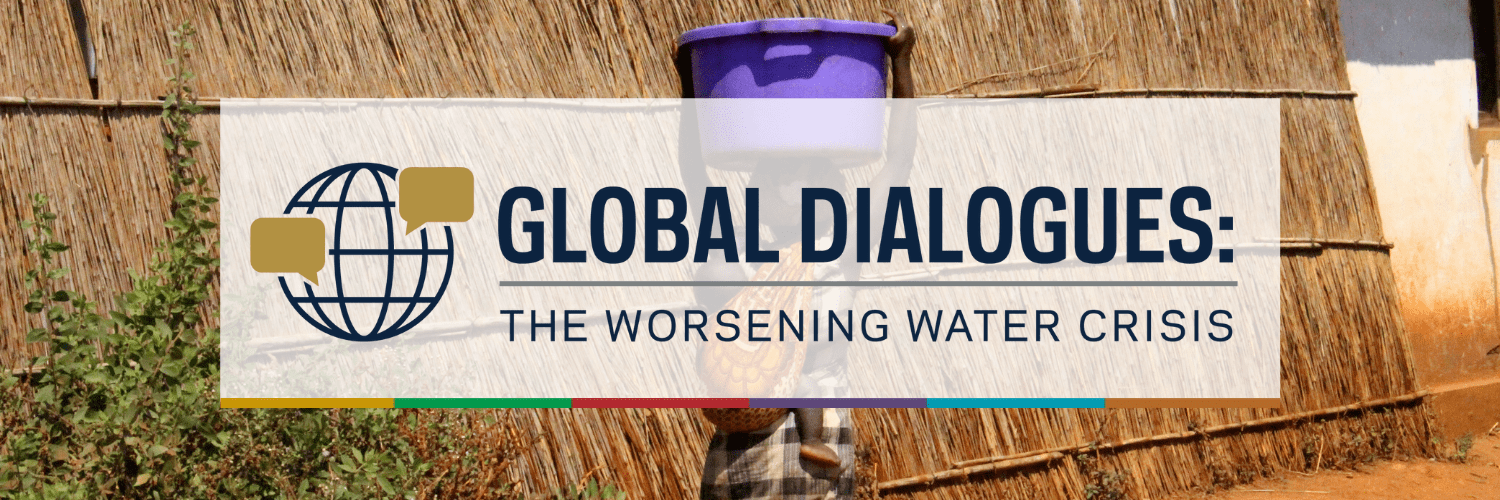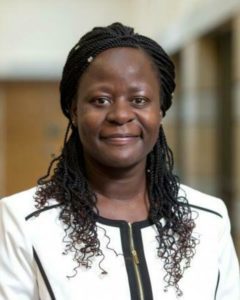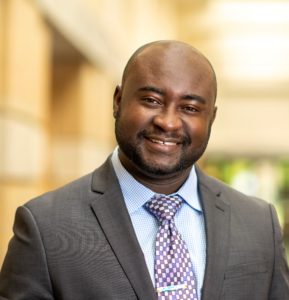Environmental Policy and Governance in Malawi

This week, join NDI staff in Nairobi, Kenya and Notre Dame Geography and Environmental Policy Professor Ellis Adjei Adams to discuss his current research and its three main domains: 1) urban water insecurity, 2) water policy and governance, and 3) gender, water, and sustainable development.
Meet the Director: Jackline Oluoch-Aridi

Dr. Jackline Oluoch-Aridi joined Notre Dame International in 2021. She is based in Nairobi, Kenya and provides leadership and guidance to Notre Dame partners in Africa. Oluoch-Aridi also works with faculty and students in supporting the implementation of research projects and activities as well as strengthening current partnerships in the region. Since 2013, Oluoch-Aridi served as regional research program manager in Nairobi, leading research and community engagement in East Africa for the Ford Family Program in Human Development Studies and Solidarity at Notre Dame’s Kellogg Institute for International Studies.
Meet the Faculty: Ellis Adjei Adams
Presented by Jackline Oluoch-Aridi

Professor Ellis Adjei Adams is an assistant professor of geography and environmental policy in the Keough School of Global Affairs at the University of Notre Dame. He is affiliated with Notre Dame’s Environmental Change Initiative and the Eck Institute for Global Health. His current research converges on three main domains: 1) urban water insecurity, 2) water policy and governance, and 3) gender, water, and sustainable development. The first explores the causes and socioeconomic consequences of household water insecurity in urban areas; the second examines how policy (public, private, community-based, etc.) and power relations influence access to water; and the third explores the multiple relationships between gender, water, and sustainable development. Theoretically, his work draws from and contributes to political ecology, feminist political ecology, environmental justice, and common pool resources theory.
Water, sanitation, and hygiene (WASH) insecurity will exacerbate the toll of COVID-19 on women and girls in low-income countries
Presented by Ellis Adjei Adams
Ellis Adjei Adams, Yenupini Joyce Adams & Christa Koki
ABSTRACT
The novel coronavirus disease (COVID-19) pandemic is having a significant global impact on livelihoods, health, and general well-being. This policy brief argues that in low-income countries (LICs) where water, sanitation, and hygiene (WASH) insecurity is widespread and closely entangled with poverty and other vulnerabilities, COVID-19 will have a particularly devastating impact on women and girls because they bear the disproportionate burden of water collection, sanitation, hygiene, and family welfare – responsibilities embedded in longstanding sociocultural norms. WASH insecurity refers to the physical and relational inequities in WASH access. Using three pathways – reproductive and perinatal health, cultural norms and the risk of COVID-19 infections, and physical and mental health – we discuss how WASH insecurity will worsen the impact of COVID-19 on women and girls in LICs.
Women and Water Governance
Presented by Ellis Adjei Adams
Notre Dame Assistant Professor of Geography and Environmental Policy Ellis Adjei Adams discusses his research on water governance and gender and the current issues and new learnings within this space, starting with water access challenges in Africa and the fact that Women and girls play a low role in water governance despite the important role they play with regards to water.
Additional Resources
Presented by Jackline Oluoch-Aridi
- COVID-19 and water access in Sub-Saharan Africa: Ghana’s free water directive may not benefit water insecure households by Sarah L. Smiley , Benjamin D. Agbemor , Ellis A. Adams & Raymond Tutu
- Research: Education & Citizenship Kenya by Faculty Fellows Jaimie Bleck and Rev. Robert Dowd, CSC
View the Live Virtual Event
Wednesday, February 9, 2022 1:00 pm
Subscribe to the ThinkND podcast on Apple, Spotify, or Google.
Featured Speakers:
- Jackline Oluoch-Aridi, Regional Research Program Manager, Ford Family Program in Human Development Studies and Solidarity at Notre Dame’s Kellogg Institute for International Studies
- Ellis Adjei Adams, Assistant Professor of Geography and Environmental Policy, Keough School of Global Affairs, University of Notre Dame
